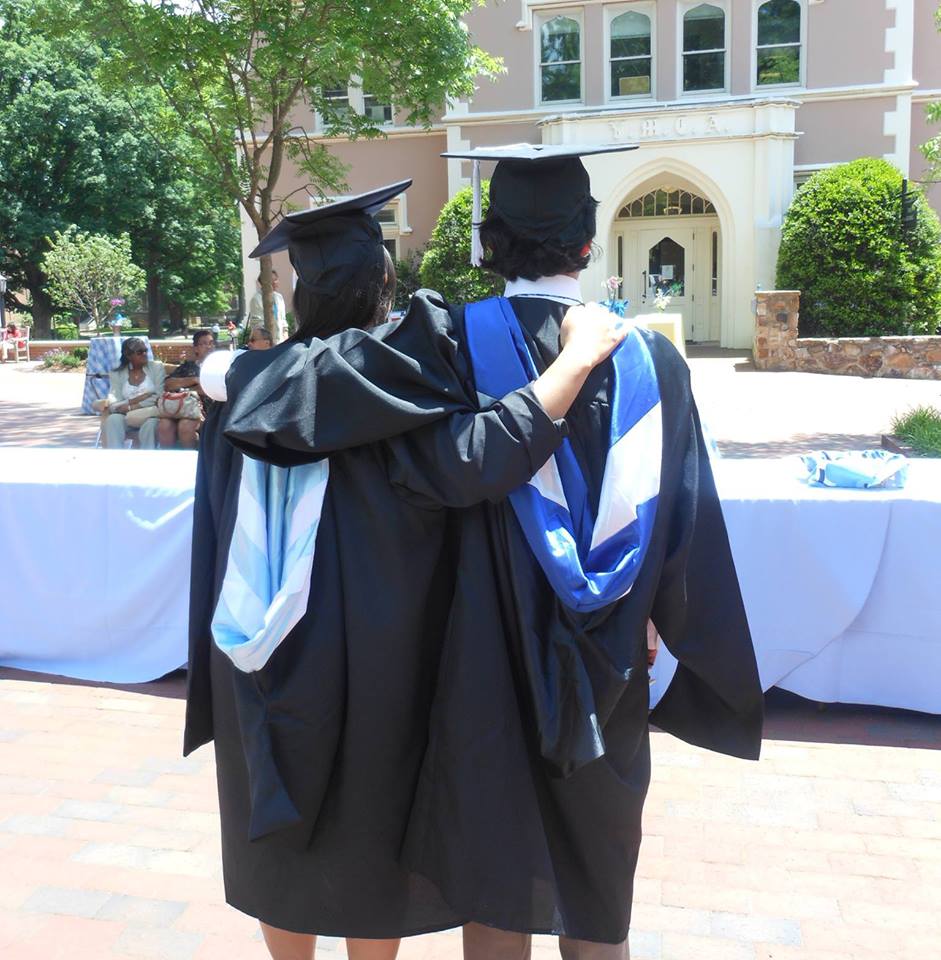Prospective Fellows
PROSPECTIVE FELLOWS
ACADEMICS
Rotary Peace Fellows accepted at Duke University will study in the Master of International Development Policy (MIDP) program at the Duke Center for International Development (DCID). MIDP is a self-designed, interdisciplinary degree that equips mid-career professionals from around the world with the analytical tools and technical expertise necessary to become global leaders in sustainable development efforts.
In addition to required MIDP seminars, students may take elective courses in other graduate departments at Duke University as well as at the University of North Carolina-Chapel Hill. Students design their course of study with the assistance of their faculty advisor.
MIDP employs faculty whose teaching, research, and consulting experience encompass a broad range of issues, including sustainable economic development, public finance, nongovernmental organizations, development management, community-based development, international trade, and environmental and social policy.
For a complete description of the MIDP program as well as admissions requirements and information about curriculum and course descriptions, please review the MIDP website.
UNC-Chapel Hill Academic Departments
At the University of North Carolina (UNC), Rotary Peace Fellows study in various departments and schools. Fellows have received master’s degrees from the following departments in recent years:
Rotary Peace Fellows at UNC have the opportunity to take courses outside of their department at both universities in addition to completing departmental requirements. UNC’s website provides detailed information on each department of the university, its requirements, faculty, and course offerings.
CURRICULUM
The curriculum at the Duke-UNC Rotary Center includes:
Whether a Rotary Peace Fellow is enrolled at Duke or UNC, each cohort of Fellows studies together in a required 3-credit core seminar each semester, designed specifically to study an aspect of peace and conflict resolution. The current curriculum is as follows:
| 1st Year | 2nd Year | |
| FALL | Cornerstone Seminar (at Duke) AND Introduction to Peace and Conflict Studies with Maureen Lempke (3.0 credit hours; at Duke) | Human Rights and Conflict with Professor Catherine Admay (3.0 credit hours; at Duke) OR Learning and Capacity Development with Lisa Moreau (3.0 credit hours; at Duke) |
| SPRING | The Theory and Practice of Conflict Transformation with Shai Tamari (3.0 credit hours; at UNC) | Capstone Seminar (1.0 credit hour; at Duke) AND Evaluation of Peacebuilding Programs with Zumrat Salmorbekova (2.0 credit hours; at UNC) |
As an important part of our peacebuilding and development curriculum, the Duke-UNC Rotary Peace Center organizes 6-8 monthly seminars and workshops during the academic year for Fellows. These events vary but may include a private meeting with a major public figure, a visit by a “practitioner-in-residence”, or a workshop led by outside experts in the field of peace and conflict resolution. Some of our seminars are open only to Rotary Fellows while others are public events. Recent examples include:
- Do No Harm workshop led by staff from the CDA Collaborative Learning Projects
- Two-day visit by practitioner-in-residence Joseph Sany, Technical Advisor in Peacebuilding and Mitigation, FHI 360
- Racial Equity Groundwater Presentation led by trainers from the Racial Equity Institute
- Peace- and development-related film series, including films such as Without a Fight and A Whisper to a Roar
- Partnering with the Private Sector for Peace workshop led by staff from PartnersGlobal
In addition, the Duke-UNC Rotary Peace Center organizes professional development workshops each year, including public speaking, grant proposal writing and teambuilding.
Rotary Fellows at every Rotary Center participate in a one-day annual conference, during which graduating students present their master’s research to an audience of peers, faculty, Rotarians and the general public. The conference is the culmination of nearly two years of hard work by each Fellow at Duke and UNC. It is an exciting event which involves considerable preparation on the part of the Rotary Center Board as well as all of the Rotary Fellows.
VIDEOS
Are you interested in applying for a Rotary Peace Fellowship? Limabenla Jamir, a Class 17 alum, shares her tips for writing essays as part of your Rotary Peace Fellowship application.
Language: English
Learn all about the Rotary Peace Fellowship at Duke and UNC! Rotary Peace Center staff, fellows, and volunteers share what it’s like to be involved with the Duke-UNC Rotary Peace Center.
Language: English
Are you interested in becoming a Peace Fellow?
Learn more about the benefits, requirements and timeline for applying for a fellowship.

